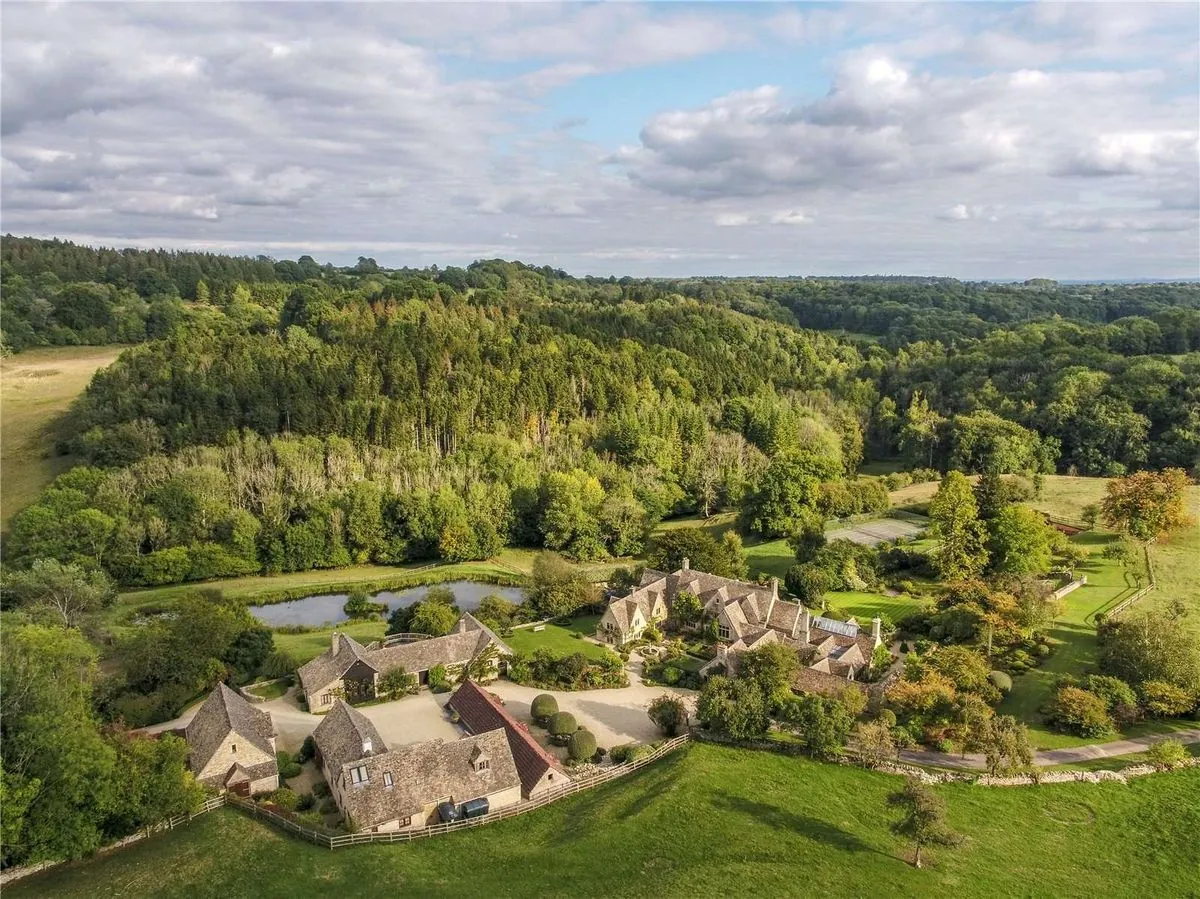Billionaire's Cotswolds Mansion Plan Sparks Local Controversy
Ron Burkle's proposal for a lavish country estate in Little Tew faces strong opposition from villagers. The Soho House magnate's resubmitted plans draw criticism for potential environmental impact and scale.

Ron Burkle, the American billionaire investor and majority stakeholder of Soho House, is embroiled in a contentious planning dispute in the picturesque Cotswolds. The controversy centers around his ambitious proposal to construct a substantial country residence in Little Tew, Oxfordshire, a project that has ignited significant local opposition.
The proposed development, situated on 4.4 hectares of farmland between Banbury and Chipping Norton, encompasses plans for a main house, swimming pool, stables, staff accommodations, and a new lake. The inclusion of solar panels in the design reflects a nod towards sustainability, aligning with broader UK government initiatives to promote renewable energy use.
However, the scale and nature of the project have drawn fierce criticism from local residents. Approximately 25 formal objections have been lodged against the application, with one nearby homeowner describing the plans as "grotesque". Another opponent suggested the design would be more appropriate for Disneyland than the quaint village of Little Tew, highlighting the perceived incongruity with the area's traditional architecture.

The Cotswolds, renowned for its distinctive golden limestone buildings and rolling hills, has long been a magnet for wealthy individuals seeking idyllic country retreats. However, this influx often leads to planning disputes as local communities strive to preserve the area's natural beauty and character.
Burkle's connection to Soho House, a global network of private members' clubs, adds another layer to the controversy. The proposed site is less than three miles from Soho Farmhouse, the brand's countryside outpost opened in 2015. This proximity has fueled speculation about potential conflicts of interest and the impact on the local community.
The planning process has been fraught with challenges. Burkle's initial application was rejected in 2022 for failing to meet specific criteria and not representing a "truly outstanding development". The resubmission to West Oxfordshire District Council has done little to assuage local concerns, with many arguing that the new plans do not significantly differ from the previous iteration.
Little Tew Parish Council has taken a firm stance against the project, describing it as an "unwarranted, unsustainable and unsuitable greenfield development". The council's objection cites inconsistencies with the West Oxfordshire 2031 Local Plan and the National Planning Policy Framework 2023, underscoring the tension between development aspirations and local planning policies.
Environmental concerns feature prominently in the objections. The site currently comprises eight fields, six used for intensive arable cultivation, one as permanent pasture, and another recently reverted from arable to grassland. Critics argue that the development could harm the natural environment and disrupt local wildlife, highlighting the delicate balance between human habitation and nature conservation in Areas of Outstanding Natural Beauty like the Cotswolds.
As the planning dispute unfolds, it reflects broader issues of rural development, wealth disparity, and environmental stewardship. The outcome of Burkle's application may set a precedent for future high-profile developments in sensitive rural areas, making it a case of interest beyond the boundaries of Little Tew.
"Rather than being a development of 'truly outstanding quality', I believe it to be a proposal of truly outstanding grotesquery. Adjectives which many have voiced and which seem more appropriate would be 'ludicrous' and 'monstrous'."
The controversy surrounding Burkle's plans underscores the challenges faced by rural communities in balancing economic development with preservation of natural and cultural heritage. As the planning process continues, all eyes will be on West Oxfordshire District Council to see how they navigate these competing interests in their decision-making.


































